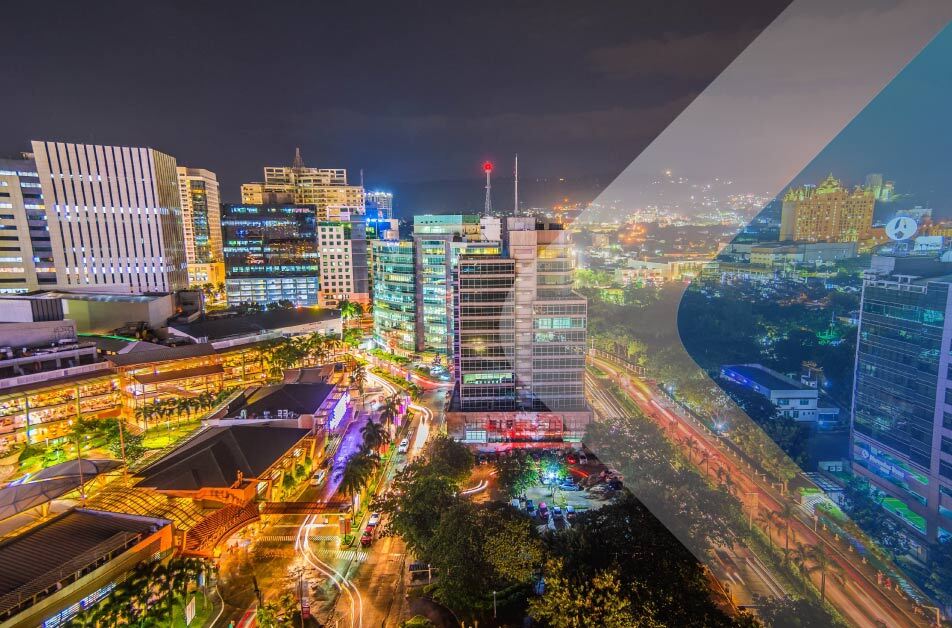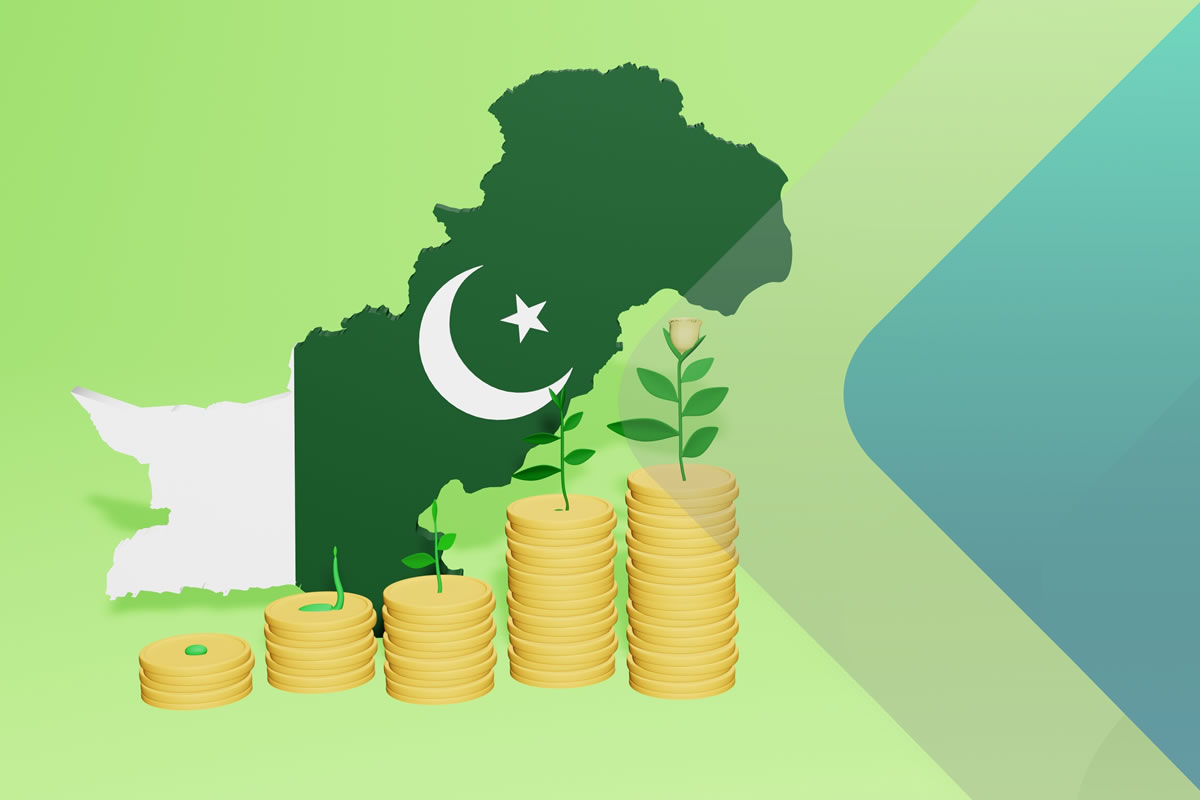Employer Of Record in Thailand
We make it easy and painless to expand your business into Thailand. Forget about dealing with local regulations, confusing tax laws and international payroll management. We take care of all that so you don't have to.
Accelerate your growth into Thailand Compliantly and hassle-free
How we can help you expand in Thailand
As your EOR in Thailand we’d help you expand by hiring employees and running their payroll without establishing a local branch office or subsidiary.
Your candidate is hired by a PEO in Thailand provider in accordance with local labor laws and can be onboarded in days instead of the months it typically takes. Shortly after, your new employee will be working for you, just like any other member of your team.
Expand to Thailand with Serviap Global
Through our PEO and EOR services, you can hire qualified talent in your industry without the trouble of opening your own legal entity.
In just a few days, you can easily and safely build a presence in Thailand being sure that your staff will be hired in compliance with labor and tax regulations
Quick Facts
Currency:
Thai Bhat (THB)
Capital:
Bangkok
Payroll Cycle:
Monthly
Language(s):
Thai
Thailand Country Facts
The Kingdom of Thailand is situated in southeast Asia and it is the second largest economy in the area, after Indonesia. The country is made up of 11th century Chinese migrants and is the only country in the region to avoid colonization.
In the recent past, the country has shifted from military rule to democracy like its strong ally the United States of America and plays a middle power role in global affairs. The standard of living has risen sharply in the recent past and the country has become a development success story.
The public transportation system is based on a bus system. For shorter distances, people often use “Tuk- tuks” which are three-wheeled vehicles used as taxis. The major cities are Bangkok, Nonthaburi, Nakhon Ratchasima, and Chiang Ma, and the nation’s currency is the Baht.
The Economy
The Kingdom of Thailand has one of the lowest unemployment rates and many citizens happily live off the land. Right now, the people are experiencing a technology boom, but the largest industries they work in are automotive and tourism.
The country relies on exports, which make up 2/3 of their GDP; the main exports are electronics, textiles, automobiles, and rubber. Before this, it relied on its production of rice, teak, and tin. There is currently a strong industrialization movement. Despite the technology boom and industrialization, the country is still the largest exporter of rice in the world and is a strong exporter of fish and shrimp.
Small and Medium Businesses
Small and medium businesses make up about 99.7% of all enterprises, making it one of the most interesting places to start a business. Those businesses make up the large portion of Thailand’s economic growth and account for 44% of its GDP and 29% of total exports. There are more than 3 million companies classified as small and medium businesses and they account for 86% of total employment. As a SME you are contributing to the business landscape as a whole.
Starting a Business
The Foreign Business Act of 1999 explains the opportunities and restrictions placed on foreign investors. Some of the restrictions prohibit foreigners from getting involved in broadcasting, forestry, fishery, trading antiques, and trading land.
Foreigners can establish three types of legal entities: a limited partnership, a representative office, and a limited company. The current investment capital requirement is 2 million Baht, and the government set up fee is 7,000 Baht.
You want to check if your business can apply for a Foreign Business License at all before you begin as this license will allow you to own 100% of your business. As a further resource to get started, the Thailand Board of Investment (BOI) helps business start-ups that are useful to the country.
Payroll
The Social Security Fund requires a contribution of 5%, but will not exceed the amount of 750 Bhat per month. The Workers Compensation fund is 0.2% to 1% for each employee. Payroll transactions must be stored for 7 years and each employee must be given a pay slip for each pay period.
| Minimum Wage | The current minimum wage is 330 Baht. |
| Wages | The median salary is 14700.00 THB/Month |
| Overtime | When using overtime, the employer will pay 150% of the salary for regular days and 200% for holidays. |
Leaves of Absence Employees have the right to paid absences for the following things: | • Vacation leave: There are 6 vacation days a year after 1 year of service. But most provide 10-15 days of paid vacation a year. • National Service Leave: Male Employees receive this leave if they are required for military practice, to join the military or check their status. This cannot exceed 60 days a year. • Training/Exam Leave: This is allowed for when employees take a training course that involves their career. • Sterilization Leave: This is for men or women who go to a clinic to become sterilized. • Monkhood Leave: For those of the Buddhist faith, and up to 120 days. • Hujj Leave: For those of the Islam faitg, and up to 120 days. • Compassionate, Marriage, and Hospitalization Leave: This is purely up to the company’s discretion. • Sick Leave: Under Labor Law, this is separate from vacation leave and an employee is allowed up to 30 paid days a year. If they are out for more than 3 days at once, the employer can request a medical certificate. If the employee was injured or became ill at work, the days out were not sick leave. • Maternity Leave: In addition to sick days, mothers are granted 98 days of maternity leave. 45 are paid by the employer and 45 by the social security fund. 8 days go unpaid, or the employer may agree to pay them if they wish. • Paternity Leave: There is no paternity leave in this country. |
Tax advantages
In 2021, the Thai Cabinet extended a 200% deduction from expenses used to purchase digital technologies to run a business; there are certain requirements for this benefit. A business can also make a 10% deductible donation to charity and life insurance can be tax deductible up to 15% of the total income.
Renewable Energy
Renewable energies make up 10% of Thailand’s domestic power generation. It uses solar, wind, hydropower plants, biomass, biogas, biofuels, and geothermal power. The Thai government has instituted The Alternative Energy Development Plan with the goal of increasing renewable energy to 30%. The Ministry of Energy encourages smart grids to reduce carbon emissions.
Business Culture
The Thai people value relationships and will do business with people they like.
- Slower Pace
They tend to do business at a slower pace than the United States of America. The Thai business person
6 is highly influenced by Buddhism which means they value harmony and avoid conflict. - Deliberate
They will spend a lot of time developing a business relationship by deliberating the issues. - Remember the Chinese
Many companies in Thailand are owned by Chinese corporations, so it may be important to be connected to both countries.
Food Culture
Rice is the staple food in Thailand and it is typically served with local vegetables and spices. Thailand is also famous for vegetable carving.
Lemon grass, ginger, and cilantro are often used to flavor dishes. Thai dishes tend to be light and aromatic. They eat a lot of fish and other seafood and they mix them with sauces and pastes.
Different regions of Thailand will favor different foods, but some of the more popular dishes are spicy shrimp soup, chicken in coconut soup, fried noodles and fried basil with pork.
Population
The population of Thailand is 69 million with 50.69% living in Urban areas. The Thai people are made up of several ethnic groups, including Chinese, Malaysian, Vietnamese, and Laotians. There are over 1 million ethnic Burmese, and many of them are refugees.
The official language is Central Thai, this language is used in business and in schools. Highly educated people typically speak English and many also speak Chinese or Malay. The adult literacy rate is 94%.
Geography
Thailand maintains a strategic position because it is a small country about the size of France/Texas and stands at the crossroads of Southeast Asia. The climate is mostly tropical, but the north of the country experiences colder temperatures between November and February. In the south of the country, you can find rainforests as well as coconut and rubber plantations. The rainy season can create some flooding concerns.
The capital, Bangkok, is situated at the center and is surrounded by agricultural lands. The country is mostly made up of a central plain with the famous Khorat Plateau in the east and the rest of the region is mountainous, with fertile rivers and sandy beaches with 2000 miles of coastline.
- Bangkok
This is a bustling city that is at the heart of Thailand. There is a lot of demand for property here as well as shopping malls and fantastic transportation. - Pattaya
This is a beachside resort with tons of tourism and retirees. You can visit major cities with a quick hop on a train, but the city itself is rather laid back and calm. - Phuket
Foreign investors are popular in this city, and lots of tourists help to bolster the economy. - Chiang Mai
This city is the fifth largest in Thailand, so less populated than Bangkok. However, it is currently experiencing a lot of growth, with some sectors experiencing the fastest growth in the entirety of the country.
General Highlights
| Year | 2022 |
| Country | Thailand |
| Capital | Bangkok |
Num. States / Province | There are 77 provinces in Thailand: Amnat Charoen, Bueng Kan, Buri Ram, Chaiyaphum, Kalasin, Khon Kaen, Loei, Maha Sarakham, Mukdahan, Nakhon Phanom, Nakhon Ratchasima, Nong Bua Lamphu, Nong Khai, Roi Et, Sakon Nakhon, Si Sa Ket, Surin, Ubon Ratchathani, Udon Thani, Yasothon, Chiang Mai, Chiang Rai, Lampang, Lamphun, Mae Hong Son, Nan, Phayao, Phrae, Uttaradit, Tak, Sukhothai, Phitsanulok, Phichit, Kamphaeng Phet, Phetchabun, Nakhon Sawan, Uthai Thani, Ang Thong, Phra Nakhon Si Ayutthaya, Bangkok, Chai Nat, Lop Buri, Nakhon Pathom, Nonthaburi, Pathum Thani, Samut Prakan, Samut Sakhon, Samut Songkhram, Saraburi, Sing Buri, Suphan Buri, Nakhon Nayok, Chachoengsao, Chanthaburi, Chon Buri, Prachin Buri, Rayong, Sa Kaeo, Trat, Kanchanaburi, Ratchaburi, Phetchaburi, Prachuap Khiri Khan, Chumphon, Nakhon Si Thammarat, Narathiwat, Pattani, Phatthalung, Songkhla, Surat Thani, Yala, Krabi, Phang Nga, Phuket, Ranong, Satun, Trang |
| Language | Thai |
| Local Currency | Thai Baht |
| Major Religion | Buddhism |
| Date Format | dd/mm/yyyy |
| Thousands Separator Format | 999.999.999.99 |
| Country Dial Code | +66 |
| Time Zone | GMT+7 |
| Population | 69.8m |
| Border Countries | Myanmar (Burma), Laos, Cambodia, and the Gulf of Thailand. |
| Continental surface | 198,120 mi² |
| Fiscal Year | January 1 to December 31 |
| VAT % | 7% |
Taxpayer Identification Number Name in the country | TIN |
| Current President | Prayut Chan-o-cha |
What you need to know about employing personal in Thailand:
Laws and Agencies that regulate labor relationships
Most labor laws in Thailand are for both foreigners and nationals, however there is one law the Working of Foreigners Act BE 2551 that relates to foreigners only.
| Laws | Brief Description |
| The Labor Protection Act B.E. 2541 (1998) | This is the main labor law of Thailand and stands to protect employees. It helps regulate labor force, women and children, remuneration, severance and employee welfare fund amongst others. |
| Workmen’s Compensation Act B.E. 2537 (1994) | This act calls for employers with 10 or more employees to contribute .2-.1% of employees’ earnings to the Workmen’s Compensation Fund. This then provides benefits for employees. There are further laws that help pay for medical bills and so forth. |
| Social Security Act B.E. 2533 (1990) | This Act dictates how much an employer must contribute to this so that employees may have help in seven categories: injury or sickness, disability, maternity, death, child welfare, unemployment and pensions. |
| State Enterprise Labor Relations Act (Selra) B.E. 2543 (2000) | This act generally regulates benefits and relations between State Enterprises’ Management, and employees, including establishing the right for collective bargaining. |
| Labor Relations Act B.E. 2518 (1975) | This provides a framework for navigating labor disputes. |
| THE LABOR COURT AND LABOR COURT PROCEDURE B.E. 2522 (1979) | This act helps regulate court procedures. |
| THAI CIVIL AND COMMERCIAL CODE (HIRE OF SERVICE) | This is concerned with law as it pertains to hiring. |
| PROVIDENT FUND ACT B.E. 2530 (1987) | This law concerns employers with at least 10 employees, who do not have a pension, retirement or provident fund. This mandates they join a compulsory fund set by the Ministry of Labor. |
EMPLOYMENT AND JOB SEEKER PROTECTION ACT B.E. 2528 (1985) and ALIEN EMPLOYMENT ACT B.E. 2521 (1978) | Protects employees who are looking for employment either as citizens or those requesting as foreigners. |
| SKILL DEVELOPMENT PROMOTION ACT B.E. 2545 (2002) | This helps to promote and support occupational training. |
Organization membership | ADB, APEC, ARF, ASEAN, BIMSTEC, BIS, CD, CICA, CP, EAS, FAO, G-77, IAEA, IBRD, ICAO, ICC (national committees), ICRM, IDA, IFAD, IFC, IFRCS, IHO, ILO, IMF, IMO, IMSO, Interpol, IOC, IOM, IPU, ISO, ITSO, ITU, ITUC (NGOs), MIGA, NAM, OAS (observer), OIC (observer), OIF (observer), OPCW, OSCE (partner), PCA, PIF (partner), UN, UNAMID, UNCTAD, UNESCO, UNHCR, UNIDO, UNMOGIP, UNOCI, UNWTO, UPU, WCO, WFTU (NGOs), WHO, WIPO, WMO, WTO |
| Social Security | Social Security |
Key Tax and Labor Authorities
Ministry of Labor | This in Thailand is responsible for oversight of labor administration and protection, skill development, and the promotion of employment in Thailand. |
| The Revenue Department | This is responsible for tax in Thailand. |
Labor Contracts
| Written or Verbal Contracts | Contracts do not need to be written, but when they are they should be done so in strong language that is the local language. |
| Contracts must include | This should spell out: • Compensation • Benefits • Termination Requirements |
Official Letter of Employment | An offer letter in Thailand should state: Salary and Compensation amounts This should be done in THB. |
| Two Types of Contracts | In this country, there are two types of contracts. Fixed Term which is temporary or up to 6 months, seasonal, or special work, which specifies a duration. Or non-fixed term which is open-ended. |
| Work Hours | The employee works a typical 8hours a day, 5 days a week. |
Annual Taxable Income
Residents and non-residents
| Taxable Income in Baht | Tax Rate in % |
| 0-150,000 | Exempt |
| 150,001-300,000 | 5% |
| 300,001-500,000 | 10% |
| 500,001-750,000 | 15% |
| 750,001-1,000,000 | 20% |
| 1,00,001-2,000,000 | 25% |
| 2,000,001-5,000,000 | 30% |
| 5,000,001 and above | 35% |
Corporate Tax Rates
The Corporate tax rate in this country is 20%. A foreign company not carrying on business in Thailand is sub- ject to a final withholding tax on certain types income
Public Holidays
| Date | Holiday Name |
| 3 January | New Year’s Day |
| 16 Feb | Māgha Pūjā |
| 6 April | Chakri Memorial Day |
| 13-15 April | Songkran |
| 2 May | Labour Day |
| 4 May | Coronation of King Maha Vajiralongkorn |
| 5 May | Coronation Day |
| 3 Jun | H.M Queen Suthida Bajrasudhabimalalakshana’s Birthday |
| 13 Jul | Asalha Puja |
| 14 Jul | Beginning of Vassa |
28 Jul | H.M. King Maha Vajiralongkorn Phra Vajiraklaochaoyuhua’s Birthday |
| 12 Aug | H.M. Queen Sirikit The Queen Mother’s Birthday |
| 13 Oct | H.M. King Bhumibol Adulyadej The Great Memorial Day |
| 24 Oct | Chulalongkorn Memorial Day |
| 5 Dec | Father’s Day and H.M. King Bhumibol Adulyadej The Great’s Birthday |
| 12 Dec | Constitution Day |
| 31 Dec | New Year’s Eve |
Termination
| Type of Termination | Brief Description |
Justified Dismissal | A termination is justified when either the employer or employee ends the contract. If this is an open employment contract, the employee must receive notice in advance along with pay. Pay and notice are roughly two months. Otherwise, payment can be given in lieu of notice. |
Exceptions to Notice | Employees can be let go immediately without notice if: • Wilfully disobeys or habitually neglects the lawful commands of the employer • is absent often • is guilty of gross misconduct • acts in a manner that is incompatible with the due and faithful discharge of their duties |
Other forms of compensation upon termination include:
All employees who have worked at a company for more than 120 days receive a severance pay. This pay does not need to be made if there is dishonesty in performance of job and duties, or intentional criminal acts towards the employer, or one that causes financial harm. Or an employee is given warning when not following rules in the workplace and continues to break said rules. Or an employee does not show up for work for more than 3 work days without cause. Or imprisonment, unless this arises from negligence or petty offenses.
Time Within Company | Severance Pay |
More than 120 days but less than 1 year | One months Salary |
1-3 years | Three months salary |
3-6 years | Six months salary |
6-10 years | Eight months salary |
10 plus years | Ten months salary |
You might be interested in reading...
Your one-stop global hiring solution. Secure, reliable, compliant

Premium Support
No matter how big or small, we are ready to answer all your questions- anytime, anywhere.

Regional expertise
Our team of in-country experts help you navigate new markets and cultural nuances

Top-tier Benefits Packages
Great talent deserves great benefits. We offer a competitive range of benefits so that you only attract top-tier talent worldwide.

You remain 0% liable
Shift the worry from your shoulders to ours! We stay on top of regulations so you’re always 100% complaint with local laws







